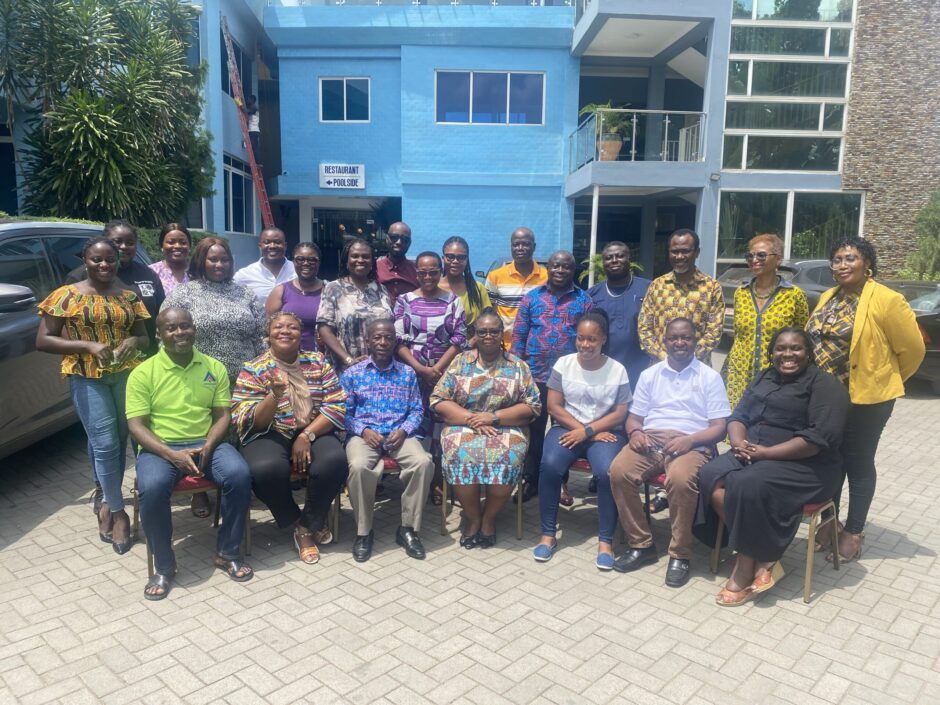Stakeholders in Horticulture Trained to Tackle Unconscious Bias and Gender Pay Gap at Work
The Ghana Employers’ Association (GEA), with support from Mondiaal FNV and in partnership with the General Agricultural Workers Union (GAWU) and the Union of Education, Agriculture and General Services (UNEAGES), successfully organized a one-day capacity-building workshop on Unconscious Bias and Gender Pay Gap in the horticulture sector. The workshop took place at Erata Hotel in Accra and brought together representatives from various enterprises and trade unions, including Management Staff and local union representatives.
The workshop aimed to sensitize employers and workers on the invisible yet deeply entrenched challenges of unconscious bias and pay disparities in the workplace, particularly affecting men and women in Ghana’s horticulture value chain.
Delivering the opening address, Mr. Kingsley Laar highlighted the importance of identifying and addressing unconscious bias as a strategic means to improve enterprise culture, increase workforce motivation, and ensure fair reward systems. Representatives from GAWU and UNEAGES also echoed the need for collaborative approaches between employers and trade unions to create equitable and productive work environments.
The workshop unfolded through three main sessions as follows:
Session 1: Understanding Intersectionality and Unconscious Bias in the Workplace
The facilitators led discussions on the fluidity of identity and the multiple forms of discrimination that intersect in the workplace. Using engaging tools such as the Power Walk Exercise and real-life illustrations, participants reflected on how factors such as gender, age, disability, and socio-economic background affect access to opportunities.
Session 2: Gender Pay Gap – Concepts, Causes, and Impacts
This session provided deep insights into the structural and systemic contributors to gender pay gaps, especially in the horticulture sector where women dominate low-paying roles with limited access to contracts and benefits. The session also elaborated on national legal frameworks (e.g., Ghana Labour Act, 2003 (Act 651), ILO Conventions 100 and 111), as well as the productivity losses associated with persistent pay inequities.
Session 3: Practical Strategies to Mitigate Bias and Promote Pay Equity
Participants were led to explore tools and HR practices for minimizing bias, ranging from gender-neutral job evaluations to transparent salary structures. Emphasis was placed on the role of leadership in promoting inclusion and building a safe, supportive work environment.
Throughout the sessions, participants engaged in group discussions and shared experiences from their own enterprises. The workshop culminated in the development of workplace-specific action plans, with enterprises committing to conduct pay equity audits, revise job descriptions, and strengthen gender-sensitive HR policies.
In closing the session, the GEA underscored the importance of sustained enterprise-level action backed by training, policy revision, and ongoing dialogue. Feedback from participants reflected strong appreciation for the relevance and practicality of the workshop content.
GEA, together with its partners, plans to follow up with tailored enterprise support, monitoring of implementation efforts, and wider sector engagement to institutionalize gender equity and bias-free work practices.

